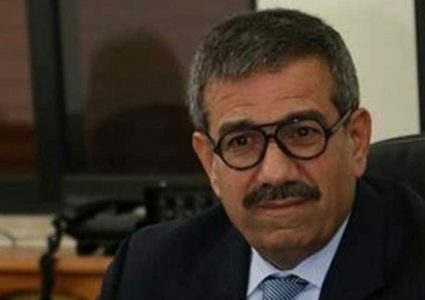The Palestinians do not have the capabilities and potential to defeat the Israeli colony project with a knockout blow, which would force the occupiers of their country to leave, but the factors available to the Palestinian people have gradually begun to expand in favor of their future:
The first is the human demographic factor, as the number of steadfast residents on the entire map of Palestine, whether in the first occupation areas in 1948 or the second occupation areas in 1967, exceeded seven million Palestinian Arabs, who constitute a people, and are not a small community, or a weak minority, limited in number, but rather a people with a complete presence and survival, clinging to their land, homeland, identity and nationality. They are the “original owners of the land,” as the communist MP Ofer Cassif said in his speech before the Knesset, and they are no less in number than the number of Israelis from foreign Jews coming from Europe and other countries of the world. The Palestinian human demographic factor is the most important factor in the conflict, as this, with its existence and continuity, constituted a strategic defeat for the entire Israeli expansionist colonial project, which sought to expel, displace and remove the Palestinians from their homeland in the years of the Nakba of 1948 and the Naksa of 1967, but it failed to expel and displace all the Palestinians.
The second important factor that the Palestinian people possess is their involvement, organization, and affiliation with the resistance factions and parties: Fatah, Hamas, the Popular Front, the Democratic Front, the Jihad, the People’s Party, Fida, the National Struggle Front, the Arab Front, the Palestinian Front, and the Initiative, in addition to the parties of the 1948 areas, from the Communists, the Islamists, the National Democratic Rally, the Arab Party for Change, and other parties and organizations, which constitute national factors of resistance in confronting the policies and programs of the colony, confronting them, and thwarting their plans.
The third factor is the resolutions of the United Nations and relevant international institutions that have come to recognize the rights of the Palestinian people and the legitimacy of their national aspirations for freedom, independence, statehood, and return, starting with Resolution 181 and Resolution 194, to the recent resolutions issued by the Security Council, the General Assembly, and the International Court of Justice, all of which constitute the declared political weapon for the clear and limited rights of the Palestinians.
In contrast, the Palestinians lack three important strategic factors, which have hindered their struggle, reduced the time required to achieve their rights, and their victory over their enemy. These factors are:
1- The absence of national coalition unity among all factions and parties, whether in the 1967 or 1948 areas.
2- The absence of serious levers supporting the Palestinian struggle and covering their real, tangible needs, neither Arab, Islamic, nor international.
3- The failure of the Palestinian political movement to penetrate Israeli society and gain support from among its ranks for the justice of Palestinian demands, the legitimacy of its struggle, and standing by its side as partners in the two-state solution, or the one-state solution based on partnership, bi-national, multi-religious, and governed by the results of the ballot boxes.
The factors available to the Palestinian people are like weapons and levers through which they will be able to seize victory. As for the factors they lack, they are an obstacle to their struggle and delay the achievement of their aspirations for victory and the restoration of their full and undiminished rights over their entire national land: Palestine.
OPINIONS
Sat 31 Aug 2024 9:40 am - Jerusalem Time
Factors of Palestinian victory and failure

Tags
MORE FROM OPINIONS
The Age of American Unilateralism. How a Rogue Superpower Will Remake the Global Order
Foreign Affairs
Friday of Resurrection, Resurrection and Redemption
Baha Rahal
"Starvation War" and the Displacement Plan
Essam Abu Bakr / Egyptian writer
Towards a meeting of the Palestinian Central Council
Hamada Faraana
Disarming Hamas
Jihad Harb
The return of authority to Gaza: a national right or a recycled crisis?
Amin Al-Hajj
Reforming the PLO or Rebuilding the Palestinian National Movement?
Raed Mohammed Al-Dabai
Challenges of the Jordanian economy
Jawad Al-Anani
Scenarios for Appointing a Palestinian Vice President: Between External Pressures and the National Interest
Bassam Zakarneh
In Gaza, people are not looking for "liberation," but for a "survival ticket."
Mohamed Gouda
The Iranian-American negotiations are complex and characterized by mistrust.
Rasim Obeidat
The situation in Gaza cannot continue like this. "Neither Netanyahu nor German politicians are above...
Pens down!
Ibrahim Melhem
Rabbis: How Do They Control Israel's Fate?
Translation for "Alquds" dot com
No to a renewed authority in the Israeli-American sense...and for the Palestinian people it means...
Fawzi Ali Al-Samhouri
When the world promotes hope for Mars and ignores the genocide of Palestine
Fadi Abu Bakr
Where are the morals of the world? A year and a half of hunger and...
Ismail Muslimmani
Destroy the destroyer and bomb the bombed
Baha Rahal
The battle of Gaza was not decided by victory or defeat.
Hamada Faraana
Trump is heading toward a national disaster.
Alon Ben-Meir






Share your opinion
Factors of Palestinian victory and failure